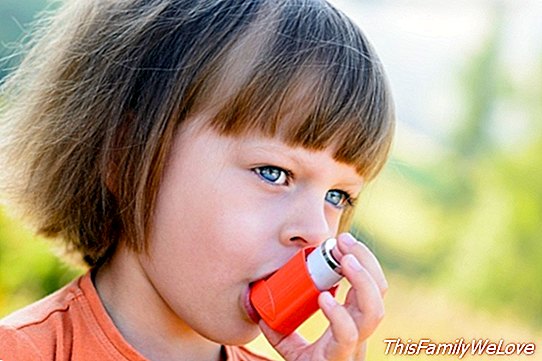Effective anti-smoking laws in the fight against childhood asthma

The tobacco not only affects those who consume it. All those around who smoke become indirect victims of this harmful product, including children. Therefore, laws against this type of articles are necessary to prevent possible health problems in younger generations.
These normative They have become more common over the years and now they seem to have fulfilled their mission. This is revealed by a study carried out by the University of Chicago, which shows how anti-smoking laws have reduced the number of asthma attacks in children.
Less exposure to smoke
This study tried to check if there is less Asthma attacks in children, since different laws were introduced anti-smoking, analyzing the emergency files of different hospitals. They investigated how many children had come to this center because of this respiratory crisis and if they had gone to less since the implementation of these regulations.
Indeed, the children who had gone to the hospital because of an asthma attack had been reduced approximately by 17% in those cities that had an anti-smoking law in force. The authors of the study claim that this situation is due to the lower exposure of children to tobacco smoke.
While in the passage it was possible for a child to expose himself to breathe this smoke in environments where it could not control its surroundings like restaurants, hotels, cafeterias, etc., these norms have managed to regulate these locations. In this way, the time that a minor receives these products by respiratory route has been minimized, causing a purer air to be inspired.
"In combination with other studies, our results make it clear that legislation on clean indoor air improves the public health"explained Dr. Theresa Shireman, one of the authors of this investigation, about the control of smoke in these places also spoke Dr. Christina Ciaccio, responsible for this research, who says that the control that children do not have on the air breathe in certain contexts, should fall on the authorities.
Pasive smokers
Not only must we prevent exposure to tobacco in public places. At home we also have to ensure that the More smalls Do not receive the harmful smoke that affects you in different ways. These are some of the consequences for children of being passive smokers:
- Acute respiratory diseases and chronic respiratory symptoms.
- Asthma and aggravation of asthmatic symptoms.
- Increased respiratory symptoms (such as cough, sore throat, ear problems).
- Higher risk of lung cancer.
- Increased risk of heart problems: myocardial infarction, angina.
Damián Montero




